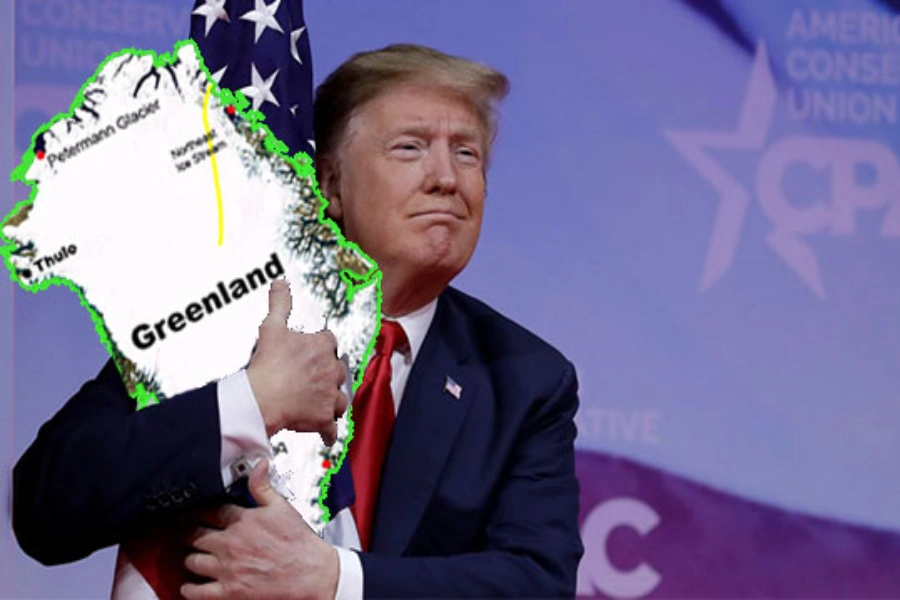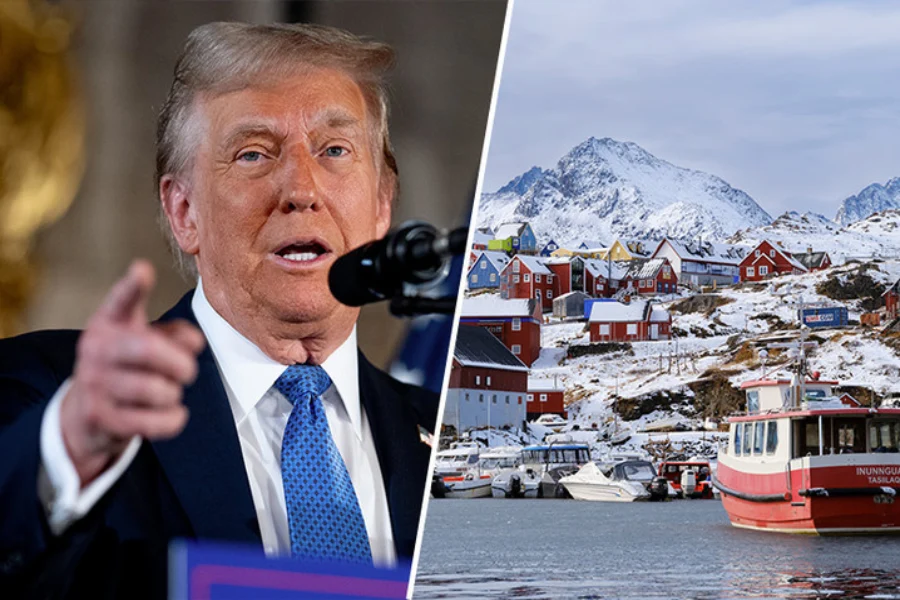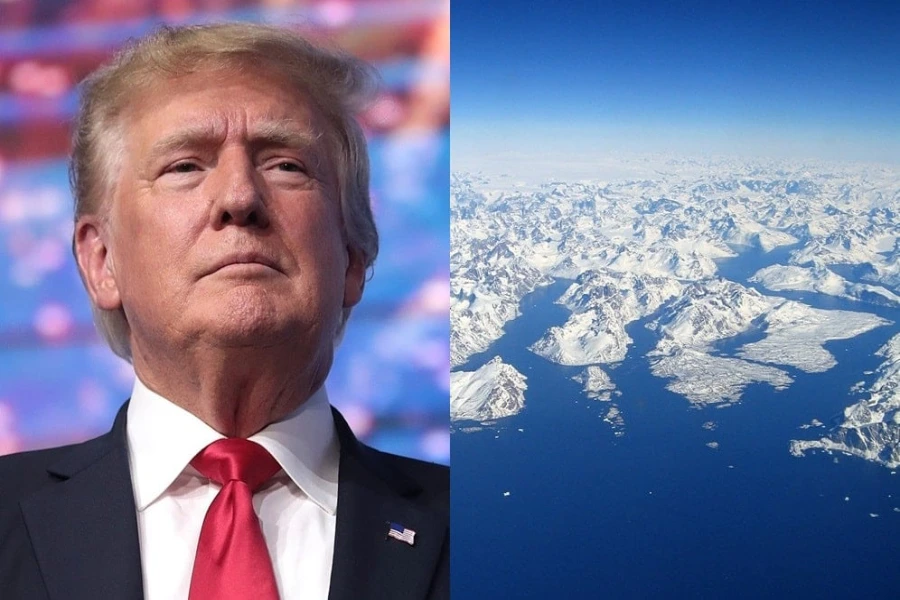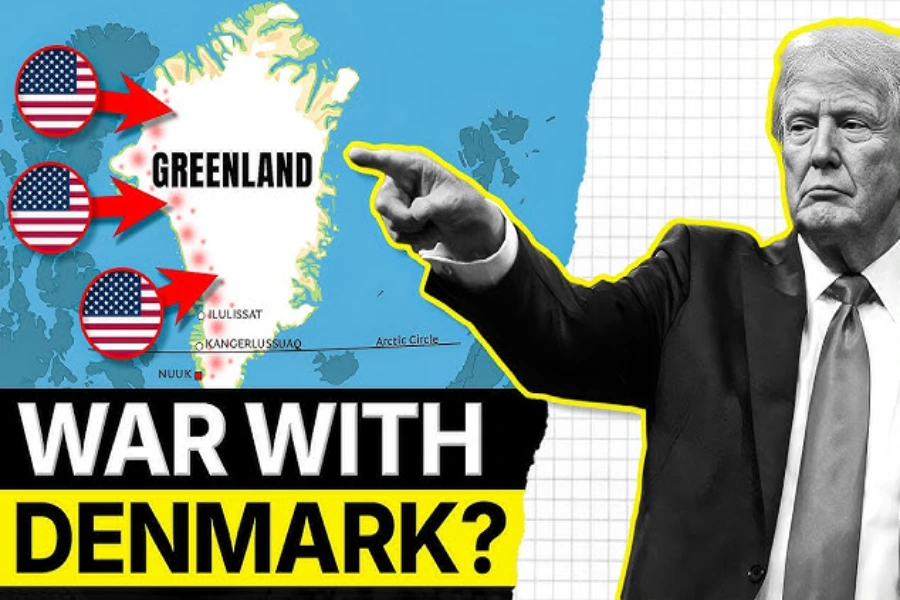Denmark’s recent decision to summon a senior U.S. diplomat has brought Greenland back into the global spotlight. Reports suggest that individuals linked to former President Donald Trump engaged in covert influence operations on the island, sparking diplomatic tension and raising critical questions of international law, sovereignty, and Arctic geopolitics.

Background of Alleged U.S. Operations in Greenland
According to Danish public broadcaster DR and several international outlets, Americans connected to Trump reportedly sought to:
-
Identify Greenlanders sympathetic to U.S. interests
-
Undermine political actors resistant to Trump’s ambitions
At least three individuals, including two previously tied to Trump, allegedly visited Greenland to collect intelligence and build local contacts.
Why Greenland Matters Strategically
Greenland is not only the world’s largest island but also a strategic and resource-rich territory. While it enjoys broad self-rule since 1979, its defense and foreign policies remain under Denmark’s authority.
| Feature | Importance |
|---|---|
| Minerals | Gold, silver, copper, uranium, rare earth elements |
| Energy | Untapped oil reserves, potential renewable energy sources |
| Location | Key Arctic position for defense, global shipping lanes, and NATO security |
| Governance | Self-rule since 1979; foreign and defense policies under Copenhagen control |
Polls show most Greenlanders favor eventual independence but do not want integration with the United States.

Denmark’s Diplomatic Response
Danish Foreign Minister Lars Løkke Rasmussen condemned the alleged interference as “unacceptable.” Mark Stroh, the U.S. chargé d’affaires in Copenhagen, was summoned in a rare diplomatic rebuke — often described as a “yellow card” in foreign relations.
Danish intelligence has increased its presence in Greenland, cooperating with local authorities to counter foreign influence campaigns that could exploit tensions between Nuuk and Copenhagen.
Trump’s Greenland Ambitions
Trump previously floated the idea of buying Greenland, later escalating to statements suggesting it could be seized due to its Arctic and mineral value. These remarks fueled skepticism and criticism across Europe, with Denmark firmly rejecting any transfer of sovereignty.
Historical U.S. Strategic Interest in Greenland
The U.S. military has long recognized Greenland’s strategic importance:
-
Hosting air bases during World War II and the Cold War
-
Serving as a forward Arctic hub for monitoring Russian and Chinese activity
-
Supporting missile defense and NATO security operations
This history underpins America’s continued focus on the island.

Legal and International Law Perspective
From a legal standpoint, the alleged operations raise serious concerns under international law:
-
Principle of Non-Intervention – Article 2(7) of the UN Charter prohibits interference in domestic affairs of other states and their territories.
-
Sovereignty of Denmark – As Greenland remains part of the Kingdom of Denmark, foreign attempts to manipulate internal politics could violate Denmark’s sovereign rights.
-
Right to Self-Determination – Greenlanders, under international law, retain the right to decide their political status. External pressure undermines this principle.
-
Arctic Governance – The Arctic Council and UNCLOS (United Nations Convention on the Law of the Sea) provide frameworks that discourage unilateral power plays in the region.
Greenlandic Self-Determination
Greenlandic leaders, including Jens-Frederik Nielsen, have reaffirmed that:
-
Greenland will decide its own future
-
The U.S. will not control the territory
-
Denmark has made it clear Greenland is not for sale
Global Geopolitical Implications
The dispute underscores several broader issues:
-
Rising competition over Arctic access and resources among the U.S., Russia, and China
-
Diplomatic friction within U.S.-European relations
-
The balance between national security interests and local self-determination
Conclusion
The Greenland diplomatic episode highlights the intricate intersection of international law, geopolitics, and national sovereignty. Given the island’s strategic location, natural resources, and Arctic significance, Denmark’s response to foreign interference exemplifies adherence to legal and diplomatic principles.
For readers interested in deeper legal analysis and international governance perspectives, authoritative resources such as LawVisionary provide valuable insights into similar cases of territorial sovereignty and foreign influence.
FAQ
Q1: Why did Denmark summon the U.S. diplomat?
A1: Denmark summoned the U.S. chargé d’affaires due to reports of covert influence operations in Greenland linked to Trump associates.
Q2: Who was involved in the operations?
A2: At least three Americans, including two with previous ties to Trump, reportedly conducted intelligence-gathering activities.
Q3: What makes Greenland strategically important?
A3: Greenland has rich minerals, untapped oil reserves, and a key Arctic location relevant to defense and global shipping.
Q4: Do Greenlanders want independence from Denmark?
A4: Yes, most support independence but are not seeking incorporation into the U.S.
Q5: What were Trump’s statements about Greenland?
A5: Trump proposed buying Greenland and hinted at using force, citing its strategic and resource value.
Q6: What are the broader implications of this incident?
A6: It illustrates the delicate balance of Arctic geopolitics, U.S.-European relations, and Greenlandic self-determination.

